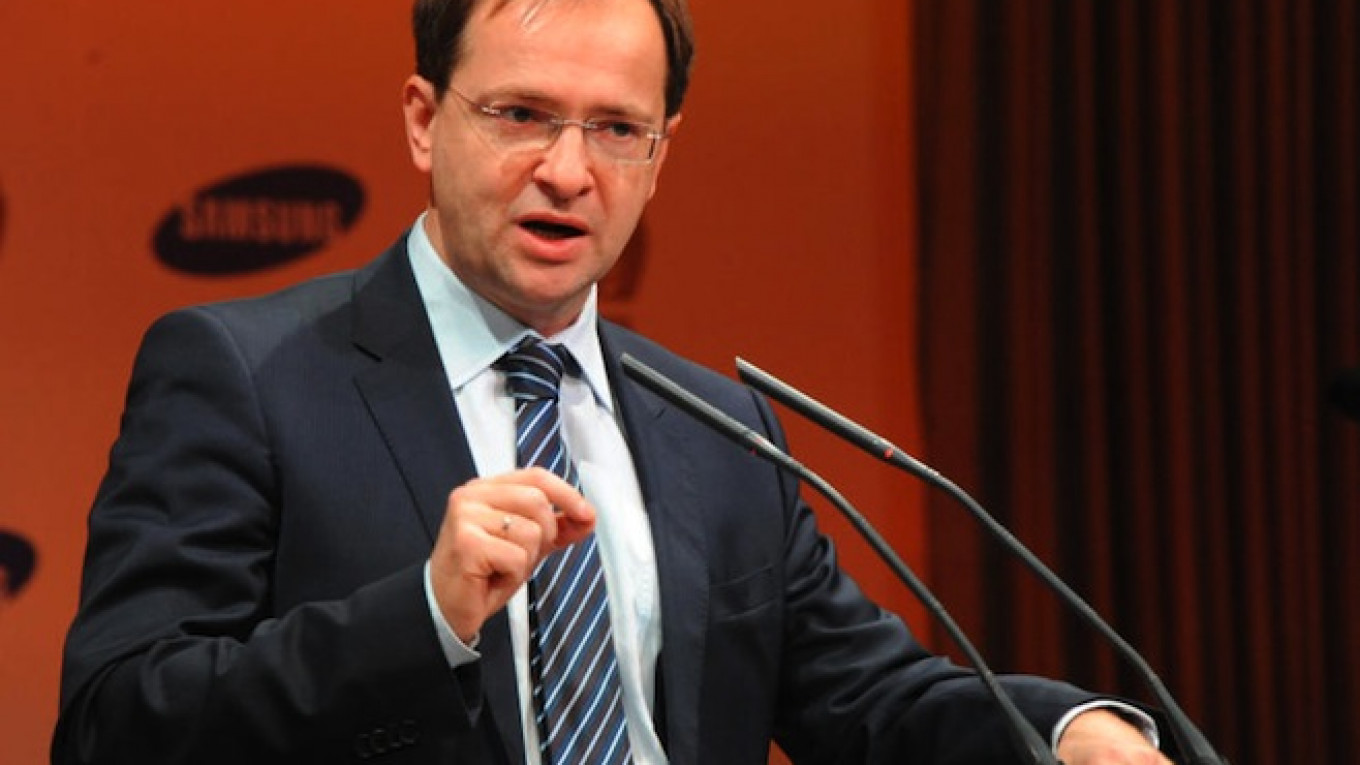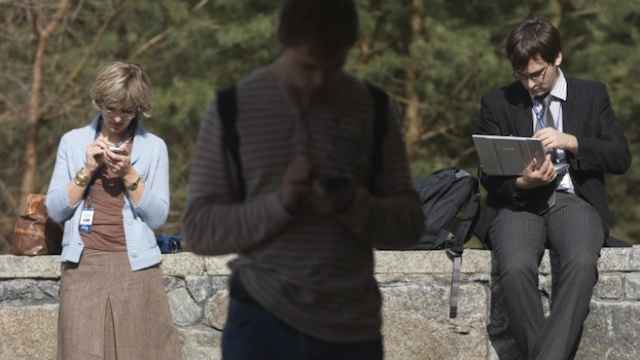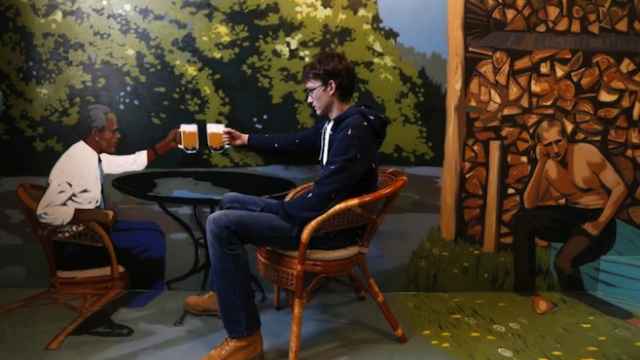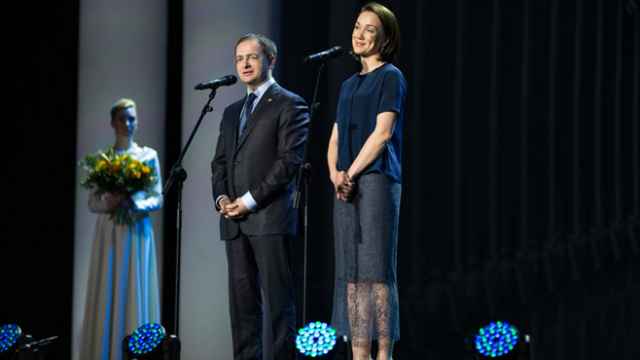Russia's culture minister struggles to keep his novelists, or his numerals, straight.
Culture Minister Vladimir Medinsky was speaking at a festival honoring famed author Sergei Dovlatov in the northwestern Pskov region this weekend, when he praised the Soviet-era writer as a 19th-century luminary.
“Sergei Dovlatov is, without a doubt, an outstanding literary phenomenon of the second half of the 19th century,” Medinsky said. “Unfortunately, as it often happens, one who left us too early. But interest in his creative work is growing.”
The remarks were broadcast by state-run Rossia-24 television channel in its festival report. Following a complaint from the Culture Ministry, Rossia-24 edited out the comment from the report posted on the network's website, but by then the footage had circulated via YouTube, prompting a flurry of taunts on social networks.
“Medinsky is an outstanding phenomenon of the Middle Ages,” Russia's Knitted.Media portal quipped in a message to its 43,600 followers on Twitter. “A minstrel of culture, no less.”
A Culture Ministry spokesperson said Medinsky “made an obvious slip of the tongue” when calling Dovlatov a 19th-century writer, Interfax news agency reported Sunday.
“Considering the minister's busy schedule, such a slip of the tongue is understandable,” the spokesperson said, adding that the ministry was “surprised” that state-run television had broadcasted the remarks.
Russians online, however, were quick to recall a previous incident when Medinsky struggled with numbers.
At the opening of Moscow's 36th International Film Festival last summer, Medinsky was reading out President Vladimir Putin's message and, according to online accounts, had trouble articulating the number in the festival's title because it appeared in the text in Roman numerals — XXXVI.
“During the four minutes of his embarrassment of a talk, the minister could not even handle the number 36 … he was unable to read that number on the first attempt, because he cannot read Roman numerals,” journalist Roman Super said on his Facebook page at that time.
Following Medinsky's latest slip, Russians responded with parodies, jeers and jocular explanations for his error.
“When I was a kid, I also, like Medinsky, could not understand why it is written: 'nineteen hundred something,' but the century is not the 19th, but the 20th,” a Twitter user said.
Another Twitter user proposed a possible continuation for Medinsky's remarks, suggesting the minister could have confused Dovlatov with Leo Tolstoy: “'We should appreciate Dovlatov for his novel 'War and Peace,'' Minister Medinsky added.”
Others expressed regrets that Dovlatov, who died in 1990, was no longer around to write a short story about Medinsky's gaffe in his iconic ironic style.
The culture minister's job qualifications have repeatedly been called into question since he took office three years ago.
A prominent online group aimed at exposing intellectual fraud by public figures, Dissernet.org, published two reports last year detailing the alleged extensive plagiarism in Medinsky's doctoral and post-doctoral theses.
Independent political analyst Andrei Piontkovsky described Medinsky as a “propaganda minister of the Goebbels type” during a 2012 interview.
Medinsky, 45, is a graduate of Moscow State Institute of International Relations (MGIMO) with a diploma in international journalism. His career began at the Russian Embassy in Washington D.C. in 1991. He founded a PR agency in 1992 before entering politics and joining the United Russia political party.
Born in 1941, Dovlatov earned his living as a journalist while unable to publish his prose fiction in the Soviet Union. His writings were circulated through samizdat and smuggled into Western Europe for foreign publication.
He emigrated from the Soviet Union in 1979 to live in New York where he gained recognition as a writer in the 1980s. Following his death in 1990 and the fall of the Soviet Union, collections of his work were published in Russia.
A Message from The Moscow Times:
Dear readers,
We are facing unprecedented challenges. Russia's Prosecutor General's Office has designated The Moscow Times as an "undesirable" organization, criminalizing our work and putting our staff at risk of prosecution. This follows our earlier unjust labeling as a "foreign agent."
These actions are direct attempts to silence independent journalism in Russia. The authorities claim our work "discredits the decisions of the Russian leadership." We see things differently: we strive to provide accurate, unbiased reporting on Russia.
We, the journalists of The Moscow Times, refuse to be silenced. But to continue our work, we need your help.
Your support, no matter how small, makes a world of difference. If you can, please support us monthly starting from just $2. It's quick to set up, and every contribution makes a significant impact.
By supporting The Moscow Times, you're defending open, independent journalism in the face of repression. Thank you for standing with us.
Remind me later.






